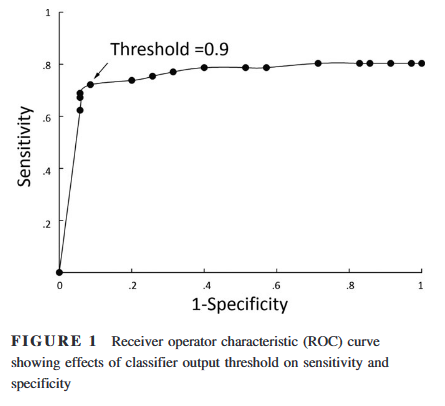Introduction
The application of artificial intelligence (AI) in healthcare is increasingly becoming a topic of interest, especially to detect diseases from pathology samples or imaging. In recognition of World Epilepsy Week, we take a look at 4 studies on developments made in AI use in epilepsy research and innovation, discussing how these may lead to improved outcomes for those living with one of the most common neurological disorders.
AI and Epilepsy Detection
The first study by Jin et al. discusses the use of machine learning in detecting Focal Cortical Dysplasia (FCD), a major cause of pharmacoresistant epilepsy in those undergoing surgical resection. The use of magnetic resonance imaging (MRI) is mostly used to detect these features, however, some FCD type II lesions are too subtle to be detected by conventional MRI scans. Finding a previously undiscovered lesion may change the surgical technique and improve seizure results. Using surface-based MRI morphometry coupled with machine learning, they were able to detect FCD with a sensitivity of 73.7% and specificity of 90.0% in this study. This method showed robust performance across different centres and scanners, suggesting AI’s potential as a valuable tool in presurgical evaluations for patients with pharmacoresistant epilepsy.

AI in Classifying Temporal Lobe Epilepsy
The second study explored in depth the use of AI in classifying Temporal Lobe Epilepsy (TLE). Gleichgerrcht et al. used support vector machine (SV) and deep learning (DL) models based on region of interest (ROI-based) structural and diffusion brain MRI data. The models showed better or similar (68–75%) performance in identifying TLE compared to lateralizing the side of TLE. The models performed more accurately for patients with hippocampal sclerosis (68–76%) than non-lesional patients (53–62%). Overall, the study demonstrated the potential of machine learning and AI in future epilepsy care, especially in TLE.
AI for Epileptic Seizure Prediction
The third study, Daoud and Bayoumi examined the use of deep learning in predicting epileptic seizures. Patients who suffer from epilepsy will experience a significant impact on their lives if they are able to anticipate the onset of seizures.The researchers developed a patient-specific seizure prediction technique based on deep learning and applied to long term scalp electroencephalogram (EEG). Four deep learning models were suggested as a method to improve classification accuracy and prediction time by extracting the most discriminative characteristics. The suggested method uses the convolutional neural network (CNN) to extract significant spatial data to predict seizures earlier than current methods. This approach yielded a high accuracy of 99.6% and a very early seizure prediction time, making it one of the most efficient methods for seizure prediction.
AI for Intracranial Interictal Epileptiform Discharges Detection
In the final study Quon and colleagues explored the use of deep learning in classifying intracranial interictal epileptiform discharges (IEDs). Epileptiform discharges that occur between seizures are known as IEDs and is also used in differentiating epilepsy types. Previous research has linked IEDs to memory loss, increased seizure frequency and recurrence, making IEDs clinically relevant. Human visual annotation of IEDs is the gold standard, however it takes time and training to classify EEG patterns correctly. The researchers developed an automated method, “AiED,” which combined a template-matching algorithm and a CNN. The method achieved comparable performance to human reviewers, suggesting its potential in supporting clinical and research EEG analyses by reducing time and resources spent.
Concluding remarks:
In conclusion these studies demonstrate the potential of AI in improving the detection and management of epilepsy. This will lead to improved accuracy, lower capacity demand on healthcare services and overall better outcome for patients living with epilepsy. As AI technology continues to evolve, its application in epilepsy management is likely to become even more significant.






